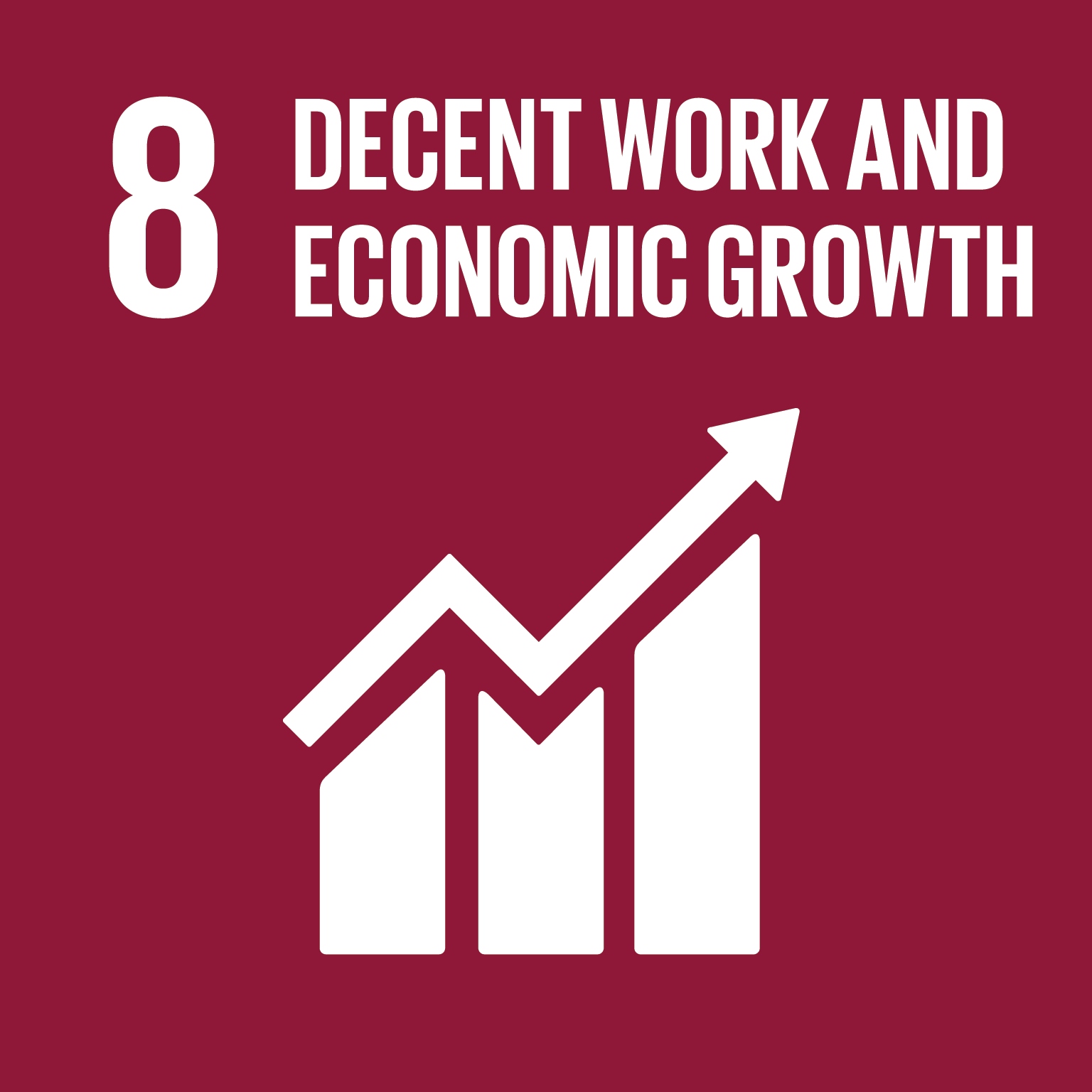
To become the leading awards programme for sustainable, scalable solutions particularly those supporting growth in sustainable livelihoods and the achievement of UN Sustainable Development Goal 8; To promote sustained, inclusive and sustainable economic growth, full and productive employment and decent work for all.
In doing so, creating an ecosystem of “shared values” businesses who channel their donations through the awards to maximise their impact.

Totalling $530,000 the Awards Recognised:

INDIA I FOR PROFIT
Flowers are a big part of religious rituals in India. It is estimated that approximately 800 million tonnes of flowers are offered annually across the temples, mosques and gurudwara in India. These generous offerings turn into colossal waste and is detrimental for our environment.
HelpUsGreen collects discarded flowers to keep them out of the water supply, then “flower-cycles” them into charcoal-free incense. The enterprise employs women from the lower social and economic strata, where they collect 11.8 tonnes of flowers on a daily basis from more than 130 temples and mosques.
1,260 women supported.
Supporting women from the lower social and economic strata to become self sustainable.

VIETNAM I NOT FOR PROFIT
Nearly half of Vietnam’s population is aged between 15 and 39 years. The country is facing the challenge of producing jobs for its young and expanding labour force and providing the relevant skillset for growing service and manufacturing sectors.
REACH’s overall objectives are to provide vocational training to equip underprivileged Vietnamese youth to gain employment. There are training courses in a range of sectors such as beauty, web design and hospitality. Over 80% of REACH graduates find jobs and graduates are on average paid 20% above minimum wage.
More than 1,100 disadvantaged youth trained per year.
Strong system to embed disadvantaged youth into formal work and to become self-sustainable.

INDIA I FOR PROFIT
India generates an estimated 62 million tonnes of waste annually. Up to 4 million waste pickers sort and segregate recyclable waste and sell it further up the value chain. Waste pickers often hail from the most marginalised communities in urban spaces.
Plastics for Change’s programme revolves around strengthening the supply chain of waste management with regard to plastic waste and intervening to minimise exploitation of waste pickers. A fair price for the plastic collected by waste pickers is guaranteed. Also, the middlemen like scrap shop owners are incentivised on the goods they procure and price they pay.
1016 fair jobs created.
Ensuring the waste picking community gets a fair price for their collection and minimising exploitation.

COUNTRIES IN LATIN AMERICA I NOT FOR PROFIT
In Latin America, the completion rate of tertiary education is as low as 14%. Laboratoria’s mission is to give Latin American women from unprivileged backgrounds a career in technology, transforming their future and the industry that receives them. The organisation prepares women from underserved contexts as software developers and user experience designers through an immersive 6-month coding bootcamp and then places them in jobs in tech. Their graduates go on to build transformational careers for themselves while filling in the enormous talent and gender gap in technology.
1000+ graduates
Enable women to find well paid jobs in the tech industry- many of which would otherwise be in low paying or informal jobs.

BRAZIL I NOT FOR PROFIT
Maré ranks 123rd out of 126 Rio de Janeiro neighbourhoods in the Human Development Index, with community facing low levels of education, high levels of unemployment and extremely high levels of drug gang and state violence.
Luta Pela Paz (part of a global organisation – Fight For Peace) use boxing and martial arts combined with education and personal development to realise the potential of young people in communities affected by crime and violence. The organisation works with youth in Maré favela, Rio, where they use a methodology that provides a series of holistic and integrated service to give young people the tools to build peaceful, positive and productive lives. A key component of their method is employability – providing training, psycho-social support and access to opportunities.
250,000+ young people have been through Fight For Peace global training program

GHANA I NOT FOR PROFIT
In Ghana, six out of ten women are illiterate, 95% of women
work in the informal sector and earn 75% less than men.
Global Mamas community works to create a life of prosperity for African women and their families. They achieve prosperity by creating and selling high quality handmade products using traditional methods. Being able to do work that they are good at and love, women are empowered and have financial independence. Global Mamas’ producers make on average 75% more than the minimum wage and 30% more than the average worker in the same industry in Ghana.
350 women now have a sustainable livelihood
Enabling women, many of whom are illiterate, to have financial independence and be self-sustainable.

KENYA I FOR PROFIT
Since the 1950s, it is estimated that around 8.3 billion tons of plastic have been produced worldwide.
Gjenge Makers aims to become the major provider of durable, recycled construction material through Kenya and the African continent. Their mission is to provide sustainable and affordable housing while promoting a recycling and upcycling culture. They currently produce bricks from discarded plastic. They employ 112 people from marginalised communities as plastic pickers, providing jobs to people who otherwise would not have the opportunity to work.
112 people who assist with waste collection
Creating employment for people in marginalised communities while resolving an environmental issue of disposal of plastic.

KENYA, UGANDA AND RWANDA I NOT FOR PROFIT
40% of the world’s children will be African by the turn of the century.
Educate! tackles youth unemployment by partnering with schools and governments to reform what schools teach and how they teach it – this is so that students in Africa have the skills to start businesses, get jobs and drive development in their communities. The organisation’s participants earn nearly double the income of their peers towards the end of school. They are also 50% more likely to be employed and 44% more likely to own a business.
260,000+ youth broadly reached
Teaching skills to the Africa’s youth to ensure they can be self sustainable



Founder & Visionary, BINC
CEO & President, PATH
Former Chair of Sustainable Engagement Network YPO
Associate Professor of Strategy & Entrepreneurship, LONDON BUSINESS SCHOOL
Partner (Head of Social Responsibility) MCKINSEY & CO
Writer & Activist
Co-founder, ONE YOUNG WORLD
Chairperson, SCHWAB FOUNDATION FOR SOCIAL ENTREPENEURSHIP
If you are an organisation that is interested in supporting the awards or would like more information, please contact: